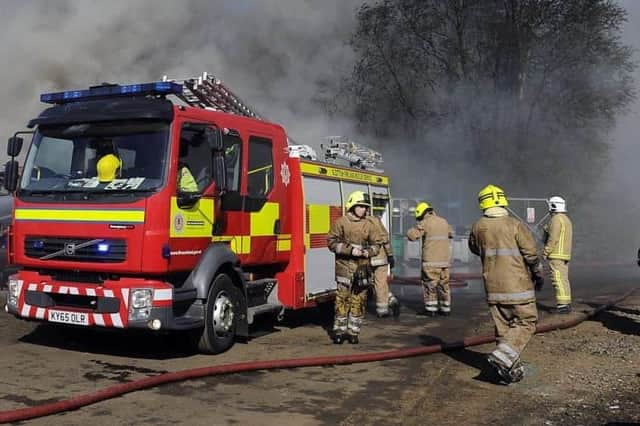Fire and rescue service sees 61% drop in call-outs to false alarms


The drop in the number of calls to Unwanted Fire Alarm Signals (UFAS) equates to 1600 fewer blue light journeys by crews.
A report due to go before Midlothian Police and Fire Rescue Board later this month says this means road users are safer and cuts the emergency service’s carbon footprint.
Advertisement
Hide AdAdvertisement
Hide AdScottish Fire and Rescue Service introduced a new policy at the start of July when they said they would no longer attend UFAS at commercial business and workplace premises, such as factories, offices, shops and leisure facilities – unless a fire has been confirmed.
The service said that crews were being called to an average of 28,000 false alarms each year, and investigating each incident could involve nine firefighters and two fire appliances as part of the response.
This equated to 252,000 firefighters needlessly being called to unwanted fire alarm signals each year when when their time could have been spent training or doing community safety work.
Businesses are expected to have a duty holder with responsibility for workplace premises who should be first responder to an alarm and check before calling 999.
Advertisement
Hide AdAdvertisement
Hide AdLast year Midlothian fire crews reported attending 422 incidents caused by UFAS – the highest number in five years.
While the biggest cause was a faulty alarm accounting for nearly a quarter of calls, it was revealed that one in 20 of the false alarms were caused by companies forgetting to disconnect from the central alert system before testing their alarm, sparking an immediate response.
The report to the Midlothian Board revealed: “Since the introduction, we have seen a 61% decrease in UFAS calls attended.
“This amounts to around 1600 less blue light journeys undertaken across Scotland and therefore improving road safety for communities and decreasing our carbon footprint as a direct result.
“We will continue to identify non-sleeping accommodation premises and work with duty holders to ensure businesses are given our support.”